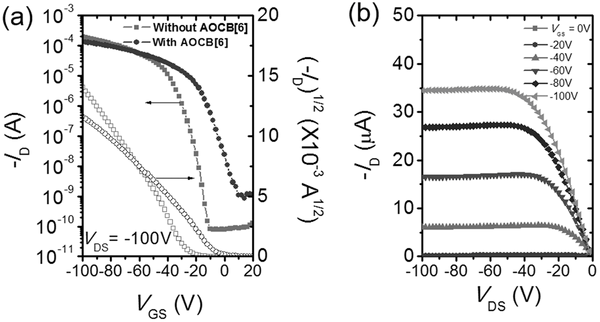
연구
Research Outcome
미래를 창조하는 포스텍 화학공학과
Highly Sensitive and Selective Biosensors Based on Organic Transistors Functionalized with Cucurbit[6]uril Derivatives
- Title of paper
- Highly Sensitive and Selective Biosensors Based on Organic Transistors Functionalized with Cucurbit[6]uril Derivatives
- Author
- [오준학교수 연구실]
- Publication in journal
- Advanced Functional Materials 25(30), p4882-4888 (August 2015)
- Publication date
- 20150812
[Abstract]
Biosensors based on a field-effect transistor platform allow continuous monitoring of biologically active species with high sensitivity due to the amplification capability of detected signals. To date, a large number of sensors for biogenic substances have used high-cost enzyme immobilization methods. Here, highly sensitive organic field-effect transistor (OFET)-based sensors functionalized with synthetic receptors are reported that can selectively detect acetylcholine (ACh+), a critical ion related to the delivery of neural stimulation. A cucurbit[6]uril (CB[6]) derivative, perallyloxyCB[6] ((allyloxy)12CB[6], AOCB[6]), which is soluble in methanol but insoluble in water, has been solution-deposited as a selective sensing layer onto a water-stable p-channel semiconductor, 5,5′-bis-(7-dodecyl-9H-fluoren-2-yl)-2,2′-bithiophene layer. The OFET-based sensors exhibit a detection limit down to 1 × 10–12m of ACh+, which is six orders of magnitude lower than that of ion-selective electrode-based sensors. Moreover, these OFET-based sensors show highly selective discrimination of ACh+ over choline (Ch+). The findings demonstrate a viable method for the fabrication of OFET-based biosensors with high sensitivity and selectivity, and allow for practical applications of OFETs as high-performance sensors for biogenic substances.




